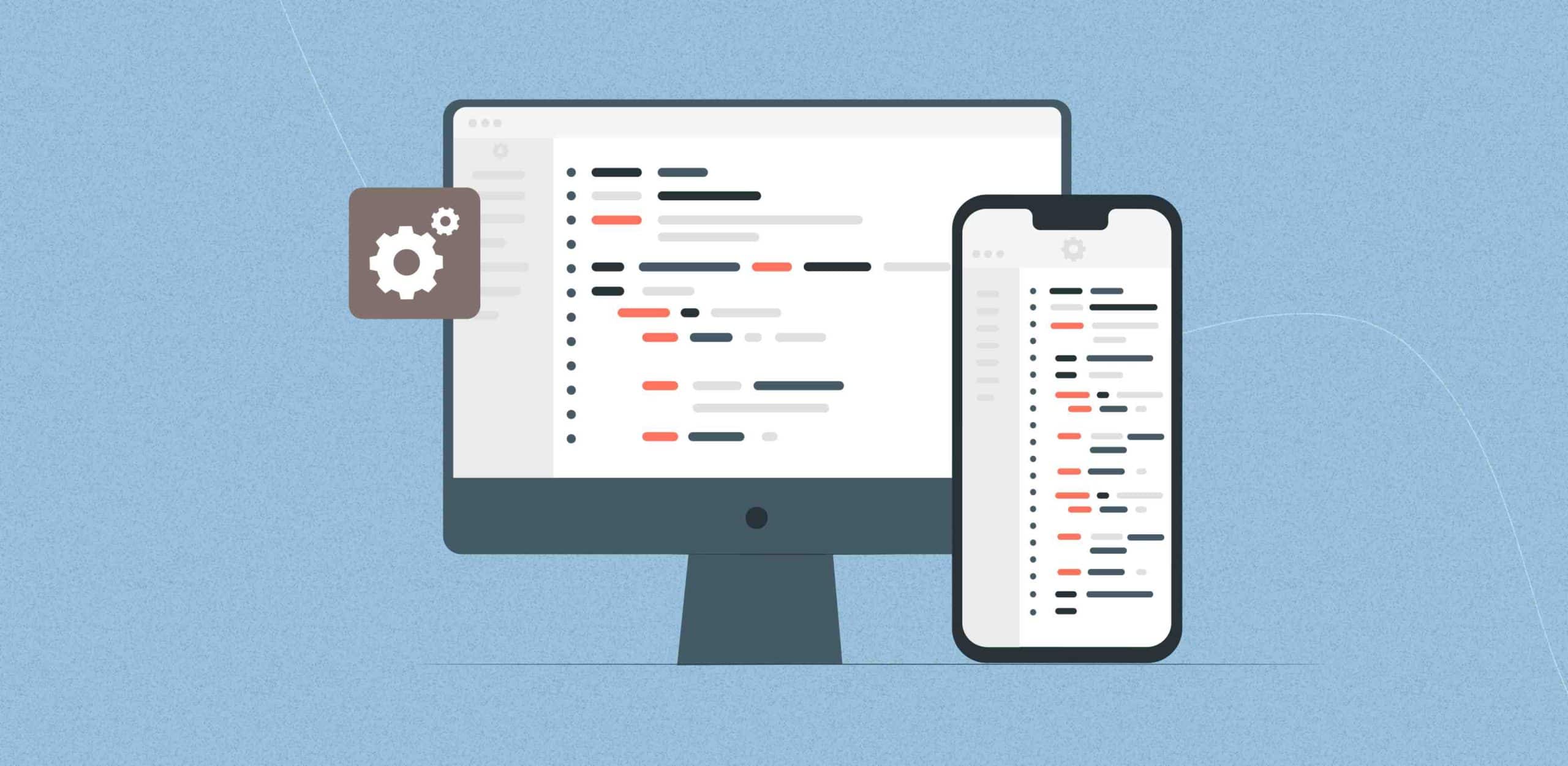AI development is revolutionizing numerous sectors, with healthcare leading the charge in this transformative era. By integrating AI into healthcare software development, the industry is witnessing not merely a trend, but a substantial leap towards more advanced medical care and improved health outcomes.
Here the blog delves into the crucial role of AI in healthcare, emphasizing its benefits, the processes involved in its development, and the market dynamics that are propelling its widespread adoption.
Healthcare Software Development
Healthcare software development has increasingly incorporated AI to address complex challenges in medical care delivery. AI-powered software applications are designed to enhance healthcare services, ranging from patient data management to diagnostic processes, treatment plan formulation, and patient monitoring. These tools enable healthcare providers to deliver more personalized, efficient, and effective care, setting a new standard in the industry.
AI Development in Healthcare: Market Overview
The global landscape for AI development in healthcare is experiencing rapid growth, fueled by an increasing demand for precision medicine and more cost-effective healthcare solutions. This surge is driven by the need to enhance the accuracy of medical diagnoses and the efficiency of treatment modalities, which AI technologies are uniquely positioned to deliver.
Recent studies suggest that the market for AI in healthcare is on a trajectory to achieve unprecedented growth rates in the coming years. For instance, a report by Precedence Research projects that the global AI in healthcare market size will reach USD 187.95 billion by 2030, expanding at a compound annual growth rate (CAGR) of 37% from 2022 to 2030. This anticipated growth underscores AI’s integral role in the evolution of healthcare infrastructures worldwide.
Hospitals, research institutions, and healthcare providers are at the forefront of this technological adoption. Investment in AI by these entities is growing, driven by the potential for improved service delivery and operational efficiencies.
Moreover, partnerships between AI technology companies and healthcare institutions are becoming more common, as these collaborations often lead to innovative solutions that address specific clinical needs. Such partnerships not only accelerate the development and implementation of AI but also ensure that these technological advances are practical and grounded in real-world healthcare applications.
Read the blog on AI Everywhere: How Different Industries Benefit from Artificial Intelligence.
Benefits of AI Development Solutions in Healthcare
AI development solutions are reshaping the healthcare landscape by significantly enhancing efficiency, improving patient care, and reducing operational costs. Here’s an in-depth look at the myriad benefits these technological advancements are bringing to modern healthcare systems:
Patient Data And Risk Analytics
AI algorithms excel in processing extensive patient data—from historical health records to real-time health metrics. These advanced systems can predict potential health risks and the progression of diseases with remarkable accuracy. This capability allows healthcare providers to intervene proactively, ensuring timely and effective treatment plans that can drastically improve patient outcomes.
Medical Imaging And Diagnostics
AI significantly enhances the accuracy and speed of medical imaging diagnostics. Using deep learning techniques, AI can analyze complex imaging data like X-rays, MRIs, and CT scans faster and with greater precision than ever before. This not only aids in the early detection of diseases but also streamlines the diagnostic process, enabling quicker treatment decisions and better patient care.
Precision Medicine
AI supports the burgeoning field of precision medicine, which focuses on tailoring healthcare to individual genetic profiles. By analyzing a patient’s genetic data, AI helps develop personalized treatment plans that are more effective and have fewer side effects. This personalized approach not only enhances the effectiveness of treatments but also significantly improves patient satisfaction and outcomes.
Drug Discovery
In drug discovery, AI technologies can predict the efficacy and safety of potential drug compounds early in the development cycle. This capability not only accelerates the research process but also substantially reduces the costs and time associated with bringing new drugs to market. AI’s predictive power is revolutionizing pharmaceutical research, making the development of new treatments faster and more cost-effective.
Lifestyle Management & Monitoring
AI-powered applications and devices are transforming lifestyle management and chronic disease monitoring by providing continuous, personalized feedback to patients. These tools help individuals manage their health better through tailored recommendations and alerts, which is particularly beneficial for chronic conditions like diabetes and hypertension. This proactive health management helps maintain optimal health over the long term.
Emergency Room & Surgery
AI is transforming emergency care and surgical procedures by assisting in case prioritization and logistical planning. During surgeries, AI can provide real-time analytics and enhanced visualizations, guiding surgeons more effectively. In emergency rooms, AI systems prioritize patients based on the severity of their conditions, ensuring that those in urgent need receive immediate care.
Cybersecurity
Given the sensitivity of healthcare data, AI plays an essential role in cybersecurity within the healthcare sector. AI systems monitor and detect cybersecurity threats in real-time, safeguarding patient information and ensuring compliance with privacy regulations. This proactive threat detection is crucial in preventing data breaches and maintaining trust in healthcare institutions.
Real-time Prioritization and Triage
AI improves outcomes in emergency care by triaging patients based on the urgency of their conditions. By predicting hospital resource needs and patient inflow, AI ensures that resources are allocated efficiently, and critical cases are attended to promptly.
AI-Powered Telemedicine
AI is enhancing telemedicine by introducing features such as virtual health assistants and automated diagnostics. These advancements make remote healthcare more efficient and accessible, reducing the need for in-person visits and allowing patients to receive care from the comfort of their homes.
Efficient Operations
AI streamlines hospital operations through automated scheduling, resource allocation, and patient flow management. These improvements reduce wait times, increase patient throughput, and elevate the overall quality of healthcare services.
Enhanced Patient Care
AI tools equip healthcare professionals with real-time data and decision support, enhancing the accuracy of treatments and personalizing patient care. This support helps clinicians make informed decisions quickly, improving treatment outcomes and patient satisfaction.
Cost Reduction
AI reduces healthcare costs by automating routine tasks, enhancing diagnostic and treatment efficacy, and optimizing the use of resources. These cost savings can be redirected towards patient care and the advancement of medical technologies, further enhancing the quality and accessibility of healthcare services.
Contact us today, and let's discuss how our AI solutions can be customized to meet the unique challenges of your healthcare organization
AI Development Process
Developing AI solutions for healthcare is a systematic and rigorous process that requires careful planning and execution across several key stages. Here’s an in-depth look at each step in the AI development process:
Data Collection
The foundation of any AI system lies in robust data collection. For healthcare AI, this involves gathering vast and diverse sets of health-related data from various sources. These sources can include electronic health records, medical imaging, genomic sequences, and real-time health monitoring devices. The aim is to compile a comprehensive dataset that represents a wide spectrum of patient demographics, conditions, and outcomes to ensure the developed AI model is well-informed and inclusive.
Model Training
Once the data is collected, the next step is to use machine learning techniques to train AI models. This involves selecting appropriate algorithms based on the healthcare tasks at hand—whether it’s diagnosing diseases, predicting patient outcomes, or optimizing treatment protocols. During this phase, data scientists and AI developers feed the collected data into algorithms, which iteratively learn from the data to improve their predictions and outputs. Techniques like deep learning can be particularly useful in handling complex tasks such as interpreting medical images or understanding unstructured data like clinical notes.
Validation and Testing
After a model is trained, it must undergo a rigorous validation and testing phase to ensure its accuracy and reliability. This step is critical, as it confirms that the AI model performs well against real-world criteria and within acceptable safety margins. Testing involves using new data sets to challenge the AI model, ensuring that it can generalize well to new, unseen scenarios without bias or error. The validation process often includes clinical trials or pilot studies within healthcare settings to test the model’s effectiveness and safety.
Implementation
Implementing AI in healthcare settings involves integrating the validated models into existing healthcare infrastructures. This step requires careful planning to ensure that AI systems work seamlessly with current IT systems, medical devices, and workflows. It also involves training healthcare professionals on how to use these new tools effectively. Implementation may vary based on specific needs, such as deploying AI for remote patient monitoring, integrating into hospital data systems for operational tasks, or embedding within diagnostic equipment for enhanced medical imaging.
Monitoring and Maintenance
AI systems in healthcare are not set-and-forget solutions. They require ongoing monitoring and maintenance to ensure they continue to perform optimally over time. This includes regularly evaluating the system’s performance, updating the models with new data, and refining algorithms to adapt to new healthcare challenges or discoveries. Continuous monitoring helps identify any issues early, such as drift in model accuracy or biases that could impact patient care, ensuring that the AI solutions remain reliable, secure, and effective in their application.
Get to know how to choose the right AI development company for your business.
What is the future of Artificial Intelligence in Healthcare?
The future of Artificial Intelligence (AI) in healthcare heralds a transformative era that extends far beyond current applications, promising revolutionary changes that could redefine how medical care is delivered globally. As technology progresses, the role of AI in healthcare is poised to become more comprehensive, directly impacting both the operational aspects of healthcare systems and the patient experience.
Enhancements in Telehealth and Remote Care
One of the most significant advancements AI is expected to bring is in telehealth AI applications. AI has the potential to further personalize remote care, making it more responsive and tailored to individual patient needs. Through sophisticated algorithms capable of analyzing patient data in real-time, AI can provide healthcare professionals with actionable insights, even when they are not physically present with the patient.
Predictive Analytics in Preventive Care
Another groundbreaking development is the integration of AI-driven predictive analytics in healthcare. This technology can process vast amounts of data—from genetic information to lifestyle choices—to forecast potential health risks and conditions. By identifying these risks early, healthcare providers can shift from a reactive treatment model to a proactive preventive approach.
AI in Decision-Making and Clinical Settings
As AI integration deepens within healthcare systems, its influence over clinical decisions is becoming more pronounced. AI doesn’t just support healthcare providers by offering second opinions; it’s increasingly involved in shaping crucial medical decisions. For instance, AI systems equipped with machine learning can analyze medical imaging faster and often more accurately than human radiologists, spotting nuances that might go unnoticed.
The New Era of AI-Driven Healthcare
The integration of AI in healthcare is ushering in a new era characterized by greater intelligence and efficiency. The continuous learning capabilities of AI systems mean that they can adapt and improve over time, making them an invaluable asset in the dynamic field of healthcare. This evolving intelligence can lead to more innovative solutions to complex medical challenges, fundamentally changing the landscape of healthcare services and patient care.
Conclusion
As AI continues to advance, its integration into healthcare is not just inevitable but essential for the development of more responsive, effective, and personalized medical care. As an AI development company Enfin, we specialize in leveraging cutting-edge AI development solutions tailored specifically for the healthcare sector.
Whether you are looking to implement existing AI technologies or custom develop innovative AI solutions for your healthcare business, our team of experts is here to guide you through every step of the process. Contact us today to transform your healthcare services with the power of AI.
Let’s transform your business for a change that matters.
F. A. Q.
Do you have additional questions?
What is WebRTC?
WebRTC (Web Real-Time Communication) is an open-source project that enables real-time communication capabilities such as audio, video, and data sharing directly within web browsers and mobile applications without the need for additional plugins or software.
Why should businesses consider custom WebRTC development?
Custom WebRTC development allows businesses to tailor communication solutions to their specific needs, enhancing efficiency, customer satisfaction, and competitive advantage by integrating unique features that standard solutions do not offer.
What are the benefits of custom WebRTC development for businesses?
The benefits include enhanced real-time communication, improved customer engagement, cost efficiency through direct integration, and scalability to support business growth.
How does custom WebRTC development improve security?
Custom WebRTC development can incorporate advanced security measures like end-to-end encryption, secure real-time transport protocols, and custom authentication methods to protect communications and data.
Can WebRTC be integrated with existing business systems?
Yes, WebRTC can be seamlessly integrated with existing business systems such as customer relationship management (CRM) tools, enterprise resource planning (ERP) systems, and other software applications to streamline operations and communication.
What industries can benefit from WebRTC development?
Industries like healthcare, education, finance, customer service, and many others can benefit from WebRTC development due to its versatility in supporting real-time, multimedia communication and data sharing.
What new features can AI and machine learning introduce to WebRTC applications?
AI and machine learning can introduce features such as automated video quality adjustment, real-time content analysis, speech recognition, and predictive analytics to enhance the functionality and user experience of WebRTC applications.
How will 5G technology impact WebRTC applications?
5G technology will enhance WebRTC applications by providing higher bandwidth, reduced latency, and more reliable connections, thereby improving the overall quality and reliability of real-time communications.
What does the custom WebRTC development process involve?
The process typically involves stages such as requirement analysis, solution design, application development, rigorous testing, and ongoing maintenance and support.
How can a business start with custom WebRTC development?
Businesses can start by identifying their specific communication requirements, selecting a competent WebRTC development company with proven expertise, planning the project scope and budget, and engaging in a pilot project to validate the concept before full-scale implementation.














